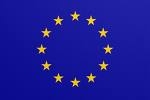PERUGIA, Italy -- Back in the good old days, European unity was all about energy. The European Union's original ancestor was the European Carbon and Steel Community, established in 1951. Six years later, on March 25, 1957, leaders signed Euratom, an agreement on atomic energy, along with the other, better-known Rome Treaty. Fifty years of peace and wealth are a testament to a convergence of fundamental interests, which would be better represented by a common European energy policy than by tomato quotas. Yet today, while the agricultural trade restrictions remain in place, energy policy has taken a back seat in the European truck, even as the Union's energy problems --natural gas ones in particular -- become more evident by the day. Europe's dependence on foreign gas, a result of high consumption and scarcity of local energy sources, is making Europe hostage to Russia's geopolitical whims once more. Two winters ago, Europe shuddered when Russia cut gas supplies to Ukraine, which ushers most Russian gas into the rest of the continent, over a price dispute.
Energy Policy Could Help Make or Break European Unity

